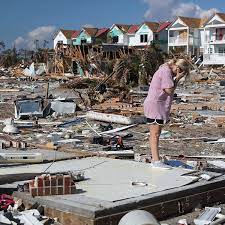Hurricane Preparedness
Each year many parts of the United States experience heavy rains, strong winds, floods and coastal storm surges from tropical storms and hurricanes. The northeast is not immune to hurricanes as witnessed in 2011 with Hurricane Irene. The Atlantic hurricane season runs from June 1st to November 30th with the peak occurring between mid-August and late October.
To prevent damage to your home and ensure your safety follow these basic safety tips from the National Weather Service:
Know where to go. If ordered to evacuate know the local hurricane evacuation route to take and have a plan for where to stay. Contact your local emergency management agency for more information.
Make arrangements for pets as emergency shelters may not allow for health and space reasons. Contact your local humane society for information on animal shelters.
Assemble a “Go-Bag” disaster kit including a flashlight, batteries, cash, first-aid supplies, medications and copies of critical information. If you do not have to evacuate be sure to have adequate supplies in case you lose power or are unable to leave due to blocked roads.
Your Home:
Hurricane winds can cause trees and branches to fall. Prior to hurricane season trim or remove damaged trees and limbs to keep your property safe.
Secure loose rain gutters and downspouts and clear any clogged areas of debris to prevent water damage to your property.
Reduce property damage by retrofitting to secure and reinforce the roof, windows and doors including garage doors.
Purchase a portable generator or install a generator for use during power outages. Remember to keep generators and other alternate power/heat sources outside, at least 20 feet away from windows and doors and protected from moisture. NEVER try to power the house wiring by plugging a generator into a wall outlet.
Bring outdoor objects inside such as lawn furniture, toys, and garden tools and anchor any objects that cannot be brought inside.
Board up windows using plywood cut to completely cover windows.
Remove outside antennas and satellite dishes.
Turn refrigerator and freezer to coldest settings. Open only when absolutely necessary and close quickly.

